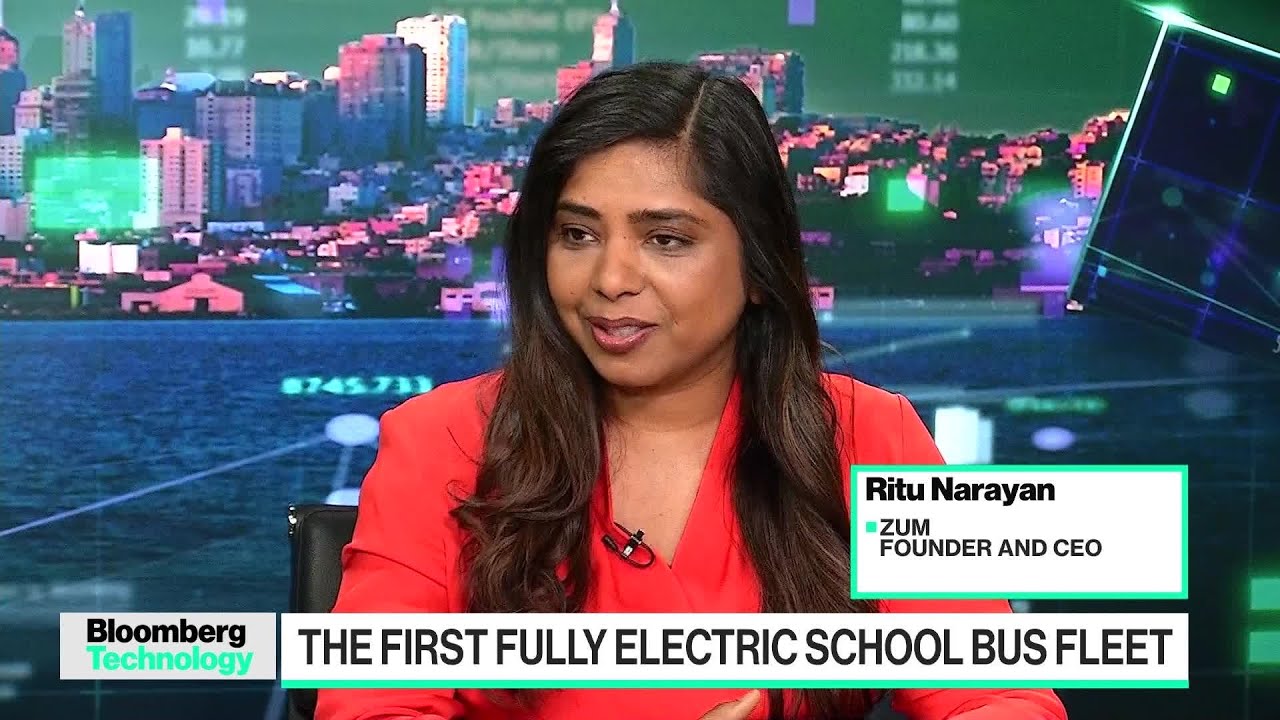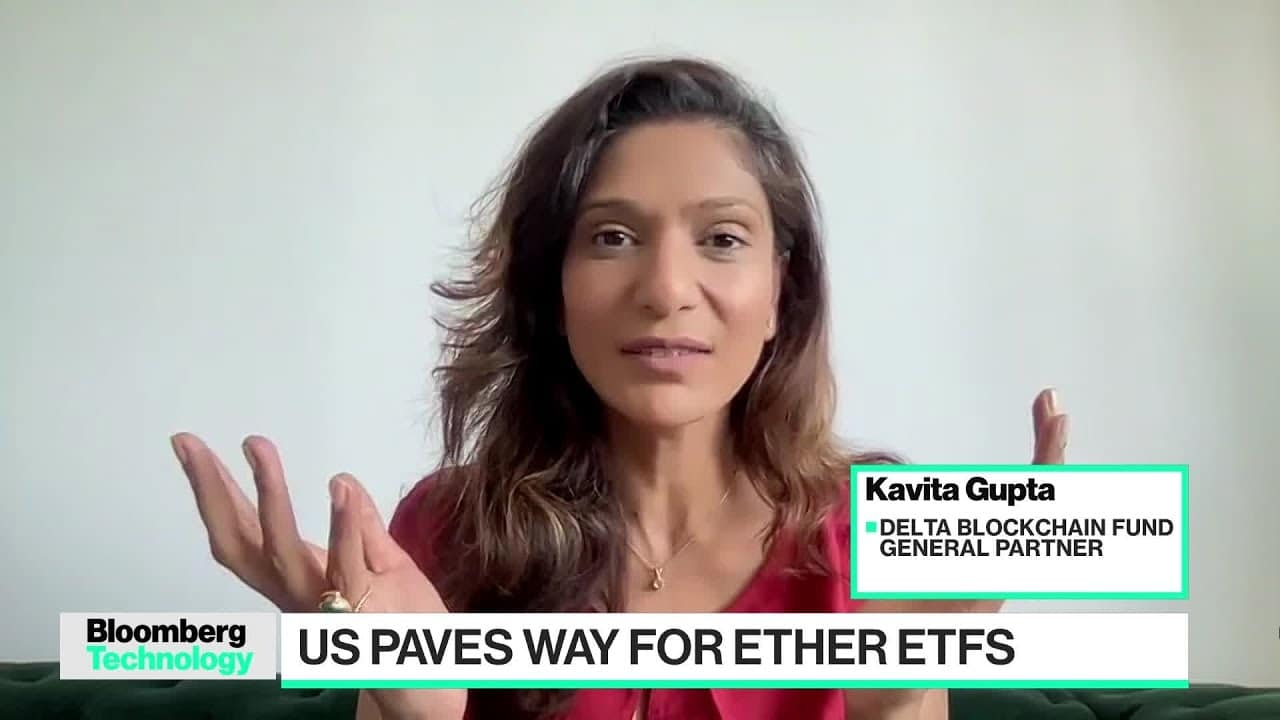Chamber of Progress Founder and CEO Adam Kovacevich and Bloomberg’s Naomi Nix join Emily Chang to talk about the fallout from the “Facebook Files.” They discuss safety on the platform and possible regulation.
——–
Like this video? Subscribe to Bloomberg Technology on YouTube:
Watch the latest full episodes of “Bloomberg Technology” with Emily Chang here:
Get the latest in tech from Silicon Valley and around the world here:
Connect with us on…
Twitter:
Facebook:
Instagram:
The documents Naomi suggests that Facebook only takes down less
than 5 percent of hate speech at the same time that we’ve heard.
Facebook representatives say they have a zero tolerance for this
stuff and also that the algorithm makes it even more difficult
to take this stuff down. Walk us through how that’s even
possible.
Yeah. So for quite some time Facebook has been really touting
the power of its A.I. systems to detect hate speech and
automatically take down some of it. You’ll regularly see
Facebook put out statistics that say you know more than 90
percent of the hate speech that we take action on was caught by
our internal systems before a user reported it to the company.
What they have never really detailed is what is the total
universe of hate speech on the platform that it is or isn’t
taking action on. And what some of the documents suggest is that
Facebook is only taking action on on less than 5 percent. And so
what we’re seeing is just a story of different statistics. And
the ones revealed by the documents are certainly far more dire.
We’ve been listening into Facebook earnings call. Mark
Zuckerberg just said that he believes these documents the
revelations of Francis Halligan paints a false picture of the
company. Take a listen to what he had to say.
My view is that what we are seeing is a coordinated effort to
selectively use leaked documents to paint a false picture of our
company.
Adam what’s your reaction to that given that these are Facebook
own internal documents not one in isolation but thousands and
thousands of pages.
Yeah. Look I worked in companies and I don’t know that any
company I worked in would necessarily love the idea of their
internal documents being published on the other hand. I do think
that you know looking in the mirror as these documents do it’s
painful but it can be a useful exercise and I think it can make
the company better. What I mean Facebook is a big global
important service plays a really important role in the lives of
its users. The questions about how it handles content and other
issues are a matter of public importance. But I do think we
should treat the revelations well from the Facebook papers and
reporting with nuance because I think one of the things that
comes through the documents is you see a company trying to
balance competing values. Right. And they may not always get it
right.
But I do think there’s value hopefully in seeing kind of how
others view them. And I think that will ultimately make the
company better. Well I guess we all wonder if indeed that is the
effect that this will have on Francis. How can you. And he also
made the case that Facebook prioritizes hate speech in English
and specifically American English more so than in developing
countries and especially countries where they don’t speak
English. Talk to us about how Facebook is efforts to handle hate
speech. Misinformation in Western English speaking countries
compares to the rest of the world.
Well look it takes resources and time to not only hire
individual staffers for for content moderation purposes in these
various countries that Facebook is operating. It takes resources
to train its classifiers to decide what is hate speech in and
and how. At what point should it be flagged to Facebook.
Internal systems. And you know what the documents suggest is.
Facebook has prioritized countries in the Western world. And in
particular I’m English. There’s one document that looks at the
time spent
of the total time spent training hate speech classifiers
on the platform. Nearly a quarter of it is spent in English. And
so you know that use that potentially developing regions and
regions that are more vulnerable to offline harms because of
online activity. Left behind some of the more advanced nations.
Now of course hate speech Adam is not just limited to Facebook.
But is this because the line between hate speech and censorship
or hate speech and free speech is too hard to draw. Or is this
because Facebook in particular is just not doing enough.
I think you might see some conservatives making that argument. I
know you had David Sacks on last week and I think he made that
argument despite the fact that I think we tend to view online
speech through a partisan prism. Morning consoles had a really
interesting survey out two weeks ago where they showed that 70
percent of voters which is a very high number want social media
services to have stricter content controls which I found just
really interesting. And I think you probably see the same thing
outside the US. Your question to Naomi about international. So
should Facebook do more. Absolutely. Should. Should all the
services do more to reduce the amount of hate and hoaxes and
disinformation on their surfaces. Absolutely. I think that’s
clearly what their customers want. It’s what their advertisers
want. And I want to preserve the legal tools the First Amendment
Section 230 that help them do that. And I think ultimately what
you know what consumers are saying here is like we want to have
a good experience on your social network. We don’t want to be
bombarded with junk. And and so you know everybody all social
services can be doing a lot more to make that the case. Now the
question remains what will government do about this. Will the
FCC step in. Will lawmakers step in. Will there actually be
regulation. I want to take a listen to another thing that
Francis Haggard had to say about regulation in particular before
UK parliament.
And right now Facebook doesn’t have to solve these problems. It
doesn’t have to disclose they exist and it doesn’t meet. It
doesn’t have to come up with solutions. But in a world where
they were regulated and mandated used to tell us what the five
point plan is on each of these things and if it’s not good
enough and come back to you and ask you again.
That’s a world where Facebook now has an incentive to instead of
giving 10000 people like investing 10000 engineers to make the
metaverse we have 10000 engineers to make us safer.
And that’s the world we need.
Adam is someone who has worked on the company side for so many
years. Do you believe regulation is needed and what kind of
regulation is needed especially given the new issues that have
come to light through Facebook. Owen ISE from its own internal
research.
Regulation is needed. There are some good ideas out there. We
should have a federal comprehensive privacy law which has been
stalled for years. There’s a really good piece of legislation by
Congressman Raskin from Maryland that would have an NIH study of
kids technology issues. But I also think we need to be careful
around particular issues are on speech. A lot of the criticism
that comes Facebook way right now is really a question of its
content moderation decisions which are there making certain
decisions about certain types of speech. Most of that is First
Amendment protected speech which the company has still made a
choice to disallow. So the fact is legislation probably can’t
touch a lot of that. But I also think that you know we need to
make sure that legislation and regulation isn’t driven by a
desire to get one company or another because usually when that
happens you end up with collateral impacts than on smaller
services smaller social networks. And that wouldn’t be good for
competition which I think a lot of us want to stimulate as well.
Indeed. Now Adam we’ve been continuing to listen in to the
Facebook earnings call. I want you to take a listen to something
Mark Zuckerberg I just had to say about young users in
particular. Take a listen.
Over the last decade as the audience that uses our apps has
expanded so much and we focused on serving everyone. Our
services have gotten dialed to be the best for the most people
who use them rather than specifically for young adults. And
during this period competition has also gotten a lot more
intense especially with apples. I message growing in popularity
and more recently the rise of Tick Tock which is one of the most
effective competitors that we have ever faced. Do you retool
your team to make serving young adult daughter think
so. Adam Facebook has made the argument that kids are using
technology whether we like it or not. Somebody has to build that
experience for them and make it safe. There’s of course a
question whether we want Facebook to do that for our children.
There is a hearing on Capitol Hill tomorrow focused on kids and
technology. Tick tock. YouTube snap will be there. Their
Facebook will not be there. But what is your view on who should
be making this technology. Should it be these big tech
companies. Should it be completely different. Should it be a
non-profit effort. Should the business model know driving kids
technology be completely different and not something that’s
necessarily based on engagement or advertising.
Look I have young kids. I like that we have have Disney Plus as
an option. I’ve got Amazon Prime that Netflix as an option and
also PBS the publicly supported option. So I think all of that’s
great. And frankly to the extent that there’s an appetite for
stimulating more competition in kids technology I think that’s a
wonderful thing. Frankly our laws particularly kids privacy law
has for a long time dis incentivize services from building for
kids because services we’re worried about running afoul of the
law. I think one of the things you’ve seen in the last couple of
years is services like Facebook Messenger kids YouTube kids
apples family sharing. They’re all really good services because
they get parents a lot of control. One of the things I just
think we need to be more honest about the fact though is that
when kids hit that tween age they start to kind of shape chafing
at the limits of kid design technology. And so I think we just
need to study this. That’s why my organization is a big
supporter of this bill by Congressman Raskin that would bring
government resources to bear to study this study how kids are
using it. I think parents this is a tough issue for parents are
really struggling with this. And frankly I don’t know that
anybody in government is really giving them a very satisfying
answer right now.

 Science & Technology4 years ago
Science & Technology4 years ago
 Wired5 years ago
Wired5 years ago
 CNET4 years ago
CNET4 years ago
 Wired5 years ago
Wired5 years ago
 Wired5 years ago
Wired5 years ago
 Wired5 years ago
Wired5 years ago
 People & Blogs2 years ago
People & Blogs2 years ago
 Wired5 years ago
Wired5 years ago
















Sir Derty ✓
October 27, 2021 at 3:51 pm
These 2 know not much about how deep this Ai goes to hiding truth and uses veiled censorship to hide comments (but makes them appear to that user that its shown, its not!)
This is shadowbanning and bloomberg is literally doing this also with their uploads and comment page.. I JUST proved it on the china servellience video you did.. you are documented HIDING COMMENTS of reality with your Ai systems.. grow up, its a fact. They are trying to use this to censorship reality and push the biden agenda on facebook.. dont fall for it just uninstall and live a better life off facebook. Grow up!
Sir Derty ✓
October 27, 2021 at 3:51 pm
They are using this to stop real talk and free speech now.. with the term “hate speech” that isnt really an issue, moreso than censorship of reality (which bloomberg is and does do daily on social media to push misinformation bias for biden)
Sir Derty ✓
October 27, 2021 at 3:52 pm
Why are you hiding 2 legit comments proving you are part of the problem of misinformation and censorship?
Sir Derty ✓
October 27, 2021 at 3:53 pm
They are not approving comments proving they do not approve comments (if you prove bloomberg biased or misinformation for a fact, they hide the comment to Sort New page)
Sir Derty ✓
October 27, 2021 at 3:53 pm
Stop hiding 4 of 5 of my comments.. for nothing but your political Bloomberg bias. Grow up.. you, yes you.
Sir Derty ✓
October 27, 2021 at 3:54 pm
Incorrect
Censorship needs to be regulated more than that.. you have normal comments hidden by the AI now, for talking facts.
Sir Derty ✓
October 27, 2021 at 3:55 pm
I can easily prove this fact with MY OWN COMMENTS here.. i had 90 percent of my comments of truth and good words hidden on this very video… go to sort new, and see my normal comments, 5 of 6 comments are shadowbanned for being too legit honest.
Sir Derty ✓
October 27, 2021 at 3:56 pm
Agents for the fed, lying about hate speech as usual
D
October 27, 2021 at 6:42 pm
The US placed regulation on Germany after WW2 but does not stop hate in it’s own country. Regulation is needed. Facebook is a joke. Even more concerning is the very fast context switching. People now have tics and other medical issues.